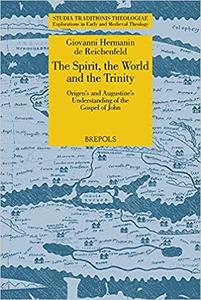
Free Download Giovanni Hermanin de Reichenfeld, "The Spirit, the World and the Trinity: Origen’s and Augustine’s Understanding of the Gospel of John "
English | ISBN: 250358991X | 2021 | 276 pages | PDF | 2 MB
In a renowned and controversial passage Origen writes: "Of the subsistence of the Holy Spirit, no-one could have even a suspicion, except those who profess a belief in Christ" (De Principiis, 1,3). But how come that ancient Christian authors elaborated a theology of the Holy Spirit? This innovative study tackles this question by analysing how the exegesis of the Gospel of John shaped the Trinitarian and soteriological agency of the Holy Spirit in the theologies of two of the most important Christian authors of all times: Origen and Augustine. In particular, the Johannine Father-Son-Spirit relation and the dichotomy between God and the world represent the foundation on which Origen and Augustine built their pneumatologies. At a closer look, one even realises that they both conceived the God-man relationship through a Johannine lens.
The heuristic comparison proposed in this book is focused on the three large themes, towards which Origen and Augustine represent opposite approaches: the understanding of the immanent Trinity, the dualism between God and the world and the proper role of the Holy Spirit. On the one hand, Origen put forward a paradigm of participation to explain the oneness and Threeness of God. On the other, Augustine understands God’s self-relation through a paradigm of identity. These two Trinitarian constructions are shaped by a different understanding of the Gospel of John: while Origen’s theology mostly smooths the gospel’s dualism by interpreting God’s salvific act as a gradual spiritualisation of the world, Augustine tends to accentuate the Gospel’s dichotomies by radicalising the Johannine dualism. This study will therefore clarify the two specific paradigms in the two authors’ theologies: participation/transformation in Origen and identity/separation in Augustine, showing also how these paradigms are patterned after their different understanding of the fourth Gospel.
Read more










Leave a Reply
You must be logged in to post a comment.